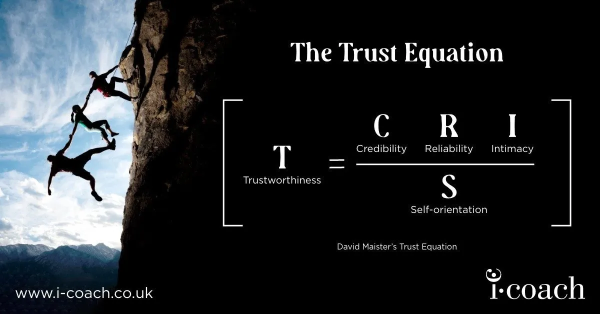
Relationships, trust and a coaching mindset in the post-covid world
As restrictions ease and we head back into offices, it’s clear that we are not returning to the life we once knew. Our commutes, meetings and relationships with colleagues have all changed, they look set to change once again and the effects will be lasting.
The anticipation is that we’ll move to a ‘hybrid model’ with some team members continuing to work from home while others come into the office on a schedule which doesn’t follow the traditional Monday-Friday 9-5.
The result of all this is that managers and leaders will continue to play a much bigger role in connecting people and connecting with people. Trust becomes even more valuable. Meaning becomes more important, as it would after such a life-changing year.
Leaders are having to make a much more concerted effort for people to feel heard, seen and valued, both across the team and in their own relationships with their reports.
It’s a daunting idea that this increase in responsibility isn’t just a temporary thing. I admit, it's a lot for a leader to continue to carry.
In this post, I want to explore just three of the components of good leadership in a post-pandemic world: trust, connection and meaning. I want to share how a coaching mindset in leaders and managers can not only ease the burden, but lift it and make it a point of growth for themselves and for their teams
Trust
Trust is at the heart of any healthy relationship. Trust takes a long time to build and just a few seconds to lose. You might’ve heard of the trust equation. At the heart of it, the key to maintaining trust is to be found in authenticity.

Trust isn’t about baring one's soul to their organisation (although it can be) it's more about being yourself, being honest about your strengths, your values. It’s about being clear in your conversations and consistent in your actions. This forms a part of the coaching mindset, which i-coach supports people to achieve.
Managers and leaders who act in alignment with what they say build a stronger sense of trust. The conversations which are facilitated through coaching can help to uncover someone's authentic self and offers tailored support and tools to help them bring their whole selves to their responsibilities.
Knowing how to build trust unlocks the door to influence and successful delegation too.
Connection
Although we can make use of instant messaging when something pops into our minds and we see the faces of our colleagues on Zoom calls, we miss out on those information gathering and relationship-building moments in the kitchen while we make coffee, walk to a meeting, or make our way to the station after work.
Some of us are in the rather odd situation of having joined a team they’ve never met in person.
It is essential that leaders and managers know how to facilitate effective partnerships built on constructive and proactive conversations whether that’s in person or online. Coaching can give you the tools to build connections, to notice moods, personalities and identify values. A coaching mindset can help foster this in others.
And just a note on connection: it’s so important that leaders and managers actually do it. It’s all too easy for a leader to take the easy path and think, ‘out of sight, out of mind’. This simply won’t do in an age where mental health and wellbeing are being taken more seriously than ever before and we come to the realisation that productivity depends on a workforce that feels supported and valued. What we’ve seen in the pandemic as well is that managers also have to have
Meaning
If there’s one thing we’ve learned about life over the past year, it’s that it really is too short. I’ve certainly heard people say that they need more meaning and purpose in their working life. We’ve been working in a pressurised situation for a protracted amount of time. A role someone once had and seemed quite content in, now feels unbearable.
We are also aware of just how empty ‘presenteeism’ is. The old school practices of focusing on the time people are in the office rather than outcomes no longer hold water.
People’s values have changed and work has to be more meaningful. What does this mean for the manager? It means a clear articulation of an individual’s purpose, but more than that, it means the manager can spot an individual's talents and interests and know how to hold a conversation to maintain meaning and motivation.
People will start to withdraw motivation if they can’t see the point in their work or a future in which they grow. A coaching mindset is geared for leaders to provide an environment in which challenging questions can be asked in a spirit of enquiry, where people are supported to come to realisations themselves
If you would like to learn more about our Coaching Essentials offer or how adopting a coaching mindset can improve your leadership and your team’s productivity, do get in touch.